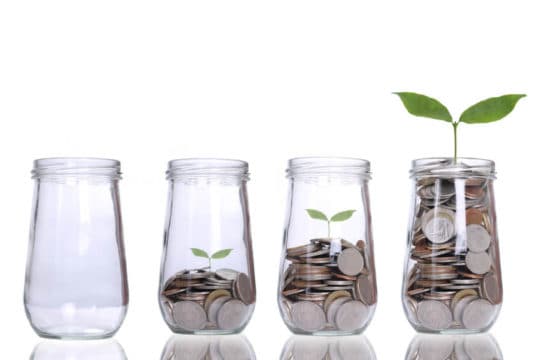I have $2,600 in credit card debt, a $13,000 personal loan, and a $23,000 car note. Three months ago, I started receiving about $1,200 to $1,800 extra a month by picking up a second job. I used that money to pay off two of my three credit cards, and I plan to pay off the third credit card (which has $2,600 left) in a month.
I was wondering if I should take the extra $1,800 a month and save it? Or should I pay off the personal loan? I only have about $6,000 in savings. I want to pay off or down the personal loan so I can start saving for a house.
—Sarah in Texas
Howard Dvorkin, CPA responds…
Now, these are the problems I love to hear! Sarah, your conundrum boils down to this: “I’ve been so financially responsible, I don’t know if I should pay off the last of my debts or save the money for emergencies and a new home.”
The good news is there’s no bad news. No matter what you do, you’ll be doing it right. Let me explain.
Get rid of interest
You don’t specify the interest rates on your personal loan and your auto loan, but they’re surely lower than those on your credit cards. As I write this, the average interest rate on the 365 million open credit card accounts in this country is almost 20 percent.
That means you spend $1 on interest for every $5 you charge. Just think what you could do with that money if you could keep it. That’s exactly what you’re doing Sarah.
Paying off your other two loans also puts more money in your pocket. The average interest rate for auto loans is nearly 4 percent for new cars and just over 8 percent for used cars. For personal loans, the rate is over 14 percent, although that takes into account many high-risk loans. Many are well under 10 percent.
So yes, it’s a great idea to apply some of your newfound money to pay off these debts as soon as you can – but not too soon.
Start an emergency fund
Living debt-free can end in an instant. All it takes is one accident, one illness, or one natural disaster. So, you should literally put something away for a rainy day. It doesn’t have to be much to start. If you search the Internet for “emergency fund,” you’ll see a confusing array of recommendations: You need three months of living expenses. No, six months. No, one year.
I recommend 3-6 months, but I’ve learned over the past three decades that anything primes the pump. If you’re discouraged by trying to save a year’s worth of living expenses while still living now, you might never get started. So I agree with financial expert Dave Ramsey, who advocates a “starter” emergency fund of $1,000.
That’s enough to cover minor emergencies, such as a car that needs some unexpected work or a TV set that conks out for good. If you budget even $20 a month toward an emergency budget – the same cost as most streaming services – you’ll bulk up your emergency savings.
Buy a home
Once you’ve paid off your debts and have a healthy emergency fund, then you can think about buying a home. Waiting has several advantages.
First, and most obviously, you’ll have time to save for the down payment. Second, home prices right now (and possibly for the foreseeable future) are prohibitively high. Third, the longer you’re debt free and paying your bills on time, the higher your credit score – which translates into a lower interest rate on your mortgage.
Fourth, with your debts under control, you can think about the future and start researching the home-buying process. I’d suggest you start here: 10 Money Strategies for Buying Your First Home.
Create a budget
Sarah, you didn’t mention if you keep a household budget.If you do, congratulations. If you don’t, here are some online tools that do the heavy lifting for you. Getting out of debt is amazing, but monthly budgeting will keep you out of debt for the rest of your life. Now that you’re oh-so-close to achieving financial freedom, I’m sure you never want to look back.
If anyone else reading this wants to be like Sarah, Debt.com can help. Just call us at for a free in-depth debt analysis.








